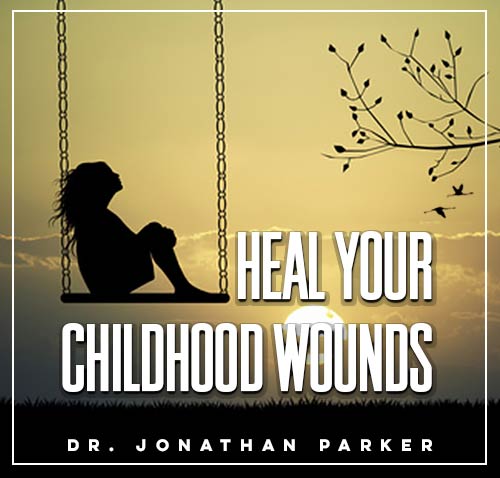Healing Childhood Pain: Embrace Self-Love

Looking for more amazing products? Check out our online store and explore our collection here! Happy shopping!
Before diving in, please note: This post is for informational purposes only. If you’d like to know more about how we approach topics, feel free to check out our friendly Disclaimer Page.
Hey there, amazing readers! 
We’re committed to delivering quality posts, and your support (even just sticking around despite the ads) means everything to us. So, bear with us, and thanks for helping us keep the good vibes rolling. Now, on to the fun stuff!
TRANSLATE BUTTON AT THE END OF THE ARTICLE
A Quick Overview
Healing childhood pain is a crucial part of emotional growth and personal development.
Childhood experiences can have a lasting impact on our mental and emotional well-being, shaping our beliefs and behaviors well into adulthood.
Embracing self-love is a powerful tool in healing these wounds, allowing us to release past traumas, build resilience, and cultivate a positive mindset.
By understanding the root of childhood pain, practicing self-compassion, and letting go of guilt and shame, we can begin to heal and nurture our inner child.
Understanding Childhood Pain
Childhood pain can stem from a variety of sources, including physical, emotional, and psychological abuse, neglect, abandonment, bullying, or witnessing traumatic events.
These experiences can leave deep emotional scars that affect our self-esteem, relationships, and overall well-being.
It is important to acknowledge and address these wounds in order to move forward and live a fulfilling life.
Impact of Childhood Trauma
Childhood trauma can have a profound impact on our mental health, leading to anxiety, depression, low self-esteem, and difficulty forming healthy relationships.
Unresolved childhood pain can manifest in self-destructive behaviors, such as substance abuse, eating disorders, or engaging in toxic relationships.
It is essential to recognize the long-term effects of childhood trauma and take steps towards healing and self-love.
Importance of Self-Love
Self-love is the foundation of healing childhood pain.
By practicing self-compassion, forgiveness, and acceptance, we can begin to rebuild our self-worth and create a positive self-image.
Cultivating self-love allows us to let go of negative beliefs and behaviors that no longer serve us, and instead, focus on nurturing ourselves with kindness and empathy.
Healing Through Self-Acceptance
Self-acceptance is a key component of healing childhood pain.
By acknowledging and embracing our emotions, flaws, and vulnerabilities, we can begin to release the shame and guilt associated with past traumas.
Self-acceptance allows us to be authentic and true to ourselves, fostering a sense of inner peace and self-compassion.
Recognizing Emotional Triggers
Understanding our emotional triggers is essential in healing childhood pain.
By identifying the thoughts, situations, or behaviors that trigger negative emotions, we can begin to address the underlying issues and work towards healing.
Recognizing emotional triggers empowers us to respond to challenging situations with self-awareness and self-care.
Practicing Self-Compassion
Self-compassion is a powerful tool in healing childhood pain.
By treating ourselves with kindness, understanding, and empathy, we can begin to soothe our emotional wounds and cultivate self-love.
Practicing self-compassion involves being gentle with ourselves, acknowledging our pain, and comforting our inner child with love and care.
Letting Go of Guilt and Shame
Guilt and shame are common emotions associated with childhood pain.
It is important to release these negative emotions in order to heal and move forward.
By acknowledging our past mistakes, forgiving ourselves, and letting go of shame, we can begin to free ourselves from the burden of self-blame and self-criticism.
Building a Support System
Building a strong support system is essential in healing childhood pain.
Surrounding ourselves with loving, understanding, and compassionate individuals can provide emotional support, validation, and encouragement on our healing journey.
A support system can include friends, family, therapists, support groups, or mentors who can offer guidance and empathy.
Seeking Professional Help
Seeking professional help is a crucial step in healing childhood pain.
Discover "SUPERFOODS: The Key to Health and Balance
"
Therapy, counseling, or support groups can provide a safe space to explore and process past traumas, gain insight into our behaviors and beliefs, and develop coping strategies for emotional healing.
A mental health professional can offer guidance, tools, and resources to support our healing process.
Embracing Inner Child
Embracing our inner child is a powerful practice in healing childhood pain.
By connecting with our younger selves, nurturing our inner child, and honoring their emotions and needs, we can begin to heal past wounds and cultivate self-love.
Embracing our inner child allows us to reconnect with our innocence, playfulness, and creativity, fostering a sense of wholeness and healing.
Self-Care Strategies for Healing
Practicing self-care is essential in healing childhood pain.
Engaging in activities that nourish our mind, body, and soul can help us cope with stress, release emotional pain, and promote self-love.
Self-care strategies may include meditation, journaling, exercise, spending time in nature, creative expression, or engaging in hobbies that bring joy and fulfillment.
Cultivating a Positive Mindset
Cultivating a positive mindset is a transformative practice in healing childhood pain.
By reframing negative beliefs, practicing gratitude, and focusing on self-empowerment, we can shift our perspective and create a more optimistic outlook on life.
Cultivating a positive mindset allows us to let go of limiting beliefs and embrace our inner strength and resilience.
Conclusion
Healing childhood pain through self-love is a journey of self-discovery, growth, and transformation.
By understanding the impact of childhood trauma, practicing self-compassion, and embracing our inner child, we can begin to heal past wounds and cultivate a sense of wholeness and well-being.
Building a support system, seeking professional help, and practicing self-care strategies are essential in fostering emotional healing and personal growth.
Embracing self-love allows us to release guilt and shame, build resilience, and cultivate a positive mindset that empowers us to live authentically and embrace our true selves.

The Enlightenment Journey is a remarkable collection of writings authored by a distinguished group of experts in the fields of spirituality, new age, and esoteric knowledge.
This anthology features a diverse assembly of well-experienced authors who bring their profound insights and credible perspectives to the forefront.
Each contributor possesses a wealth of knowledge and wisdom, making them authorities in their respective domains.
Together, they offer readers a transformative journey into the realms of spiritual growth, self-discovery, and esoteric enlightenment.
The Enlightenment Journey is a testament to the collective expertise of these luminaries, providing readers with a rich tapestry of ideas and information to illuminate their spiritual path.
Our Diverse Expertise
While our primary focus is on spirituality and esotericism, we are equally passionate about exploring a wide range of other topics and niches 

To ensure we provide the most accurate and valuable insights, we collaborate with trusted experts in their respective domains 
Our blog originally focused on spirituality and metaphysics, but we’ve since expanded to cover a wide range of niches. Don’t worry—we continue to publish a lot of articles on spirituality! Frequently visit our blog to explore our diverse content and stay tuned for more insightful reads.
Discover "Sports Nutrition: The Importance of Nutrition and Exercise for Overall Health
"
Hey there, amazing reader! 
Check out our store here and take a peek at some of our featured products below! Thanks for being awesome!















